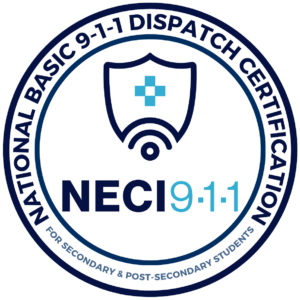Emergency Communications & Dispatch
Under Development
Emergency Communications & Dispatch (ECD) Course
The ECD course is the intermediate course for a Emergency 9-1-1 Communications and Dispatch pathway. ECD can be used in both Law and Justice as well as Public Safety pathways.
The “Emergency Communications & Dispatch” course is a comprehensive program designed for high school students as part of the Career and Technical Education (CTE) curriculum. This course is structured to provide students with the essential knowledge and skills required for effective emergency communication and dispatch operations. Participants will learn about the critical role of emergency dispatchers in facilitating prompt and efficient responses to various emergencies.
Instructional Plans & Resources
LAPSEN Unit Plans
LAPSEN will have a complete course (120-150 hours) of unit lesson plans available to members – Fall of 2024
Other Lesson Plan Sources
California Educators Together– The great state of California has an insane amount of resources and lessons. Be sure to search with different key words. You do have to have an account – but they give them to all teachers: Click Here
Texas CTE Lesson Plans – They have some materials for Law & Public Safety: Click Here
Links
9-1-1 Audio Library – a collection of 9-1-1 audio files compiled by Dispatch Magazine Online: Click Here
911.gov – the National Highway Traffic Safety Administration’s Office of Emergency Medical Services 911 website: Click Here
911 Operator the Game – word on the street is this game is great. Need console to play but no internet required: Click Here
APCO – The Association of Public-Safety Communications Officials: Click Here
LA PD Actual 9-1-1 Calls – Audio of actual emergency calls fielded by LAPD 911 operators: Click Here
NENA– the 9-1-1 Association improves 9-1-1 through research, standards development, training, education, outreach, and advocacy: Click Here
Industry Recognized Credential (IRC) for this Course
 National Basic 9-1-1 Dispatch Certification
National Basic 9-1-1 Dispatch Certification
This 40-hour 9-1-1 Basic Communications course provides students with the basic knowledge, skills, and experience to understand the functional operation of an emergency communications system, and their role and responsibilities within the emergency communications system. The high school model can be implemented in 20-40 hours of class time. At the end of the course, students will be able to take the industry certification test.
MicroCredentials (MC) for this Course
All MicroCredentials are being developed and should be ready in 2024.
National Detention and Corrections Course Standards
Under development
Working Course Objectives:
Introduction to Emergency Services:
Explore the structure and functions of emergency services, including law enforcement, fire departments, and medical responders.
Understand the interconnectedness of emergency response agencies.
Communication Systems and Technology:
Study various communication systems and technologies used in emergency services, including radio communication, telephone systems, and computer-aided dispatch (CAD) software.
Gain hands-on experience with dispatching tools and learn to manage multiple communication channels simultaneously.
Emergency Call Handling:
Develop skills in receiving and processing emergency calls, including identifying the nature of emergencies, assessing urgency, and extracting critical information from callers.
Practice effective communication techniques to elicit accurate and timely details from callers.
Emergency Protocols and Procedures:
Understand the protocols and procedures for dispatching emergency services in different scenarios, such as medical emergencies, fires, criminal incidents, and natural disasters.
Simulate emergency scenarios to reinforce procedural knowledge and enhance decision-making skills.
Crisis Management and Stress Coping:
Explore strategies for managing stress and maintaining composure during high-pressure situations.
Develop coping mechanisms and communication techniques to handle distressed or agitated callers.
Legal and Ethical Considerations:
Investigate the legal and ethical responsibilities of emergency dispatchers, including confidentiality, privacy, and adherence to protocols.
Understand the importance of maintaining professionalism and impartiality in emergency communication.
Team Collaboration and Coordination:
Learn effective teamwork and collaboration skills for coordinating responses with various emergency services.
Understand the importance of clear and concise communication within the emergency response team.
Simulation and Practical Exercises:
Engage in realistic simulation exercises to apply theoretical knowledge in a controlled environment.
Receive feedback and guidance from instructors to enhance performance.